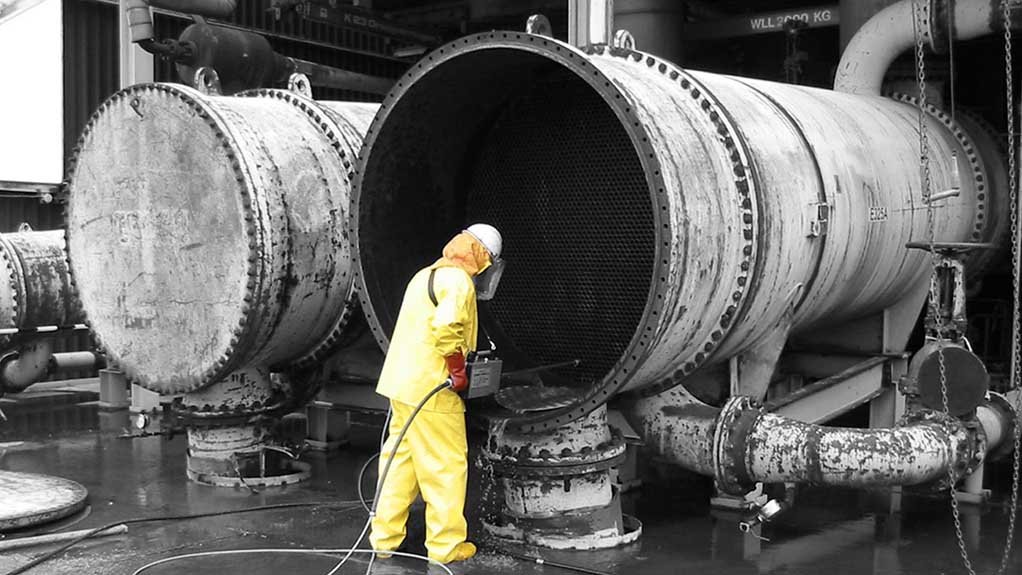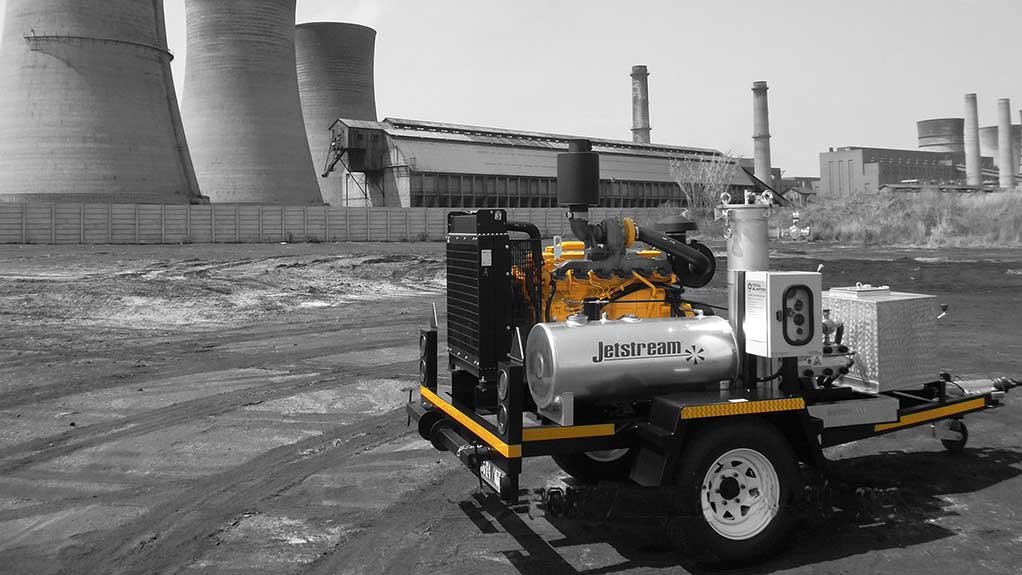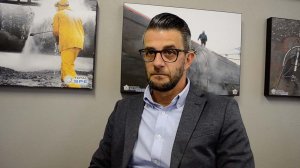Although ultrahigh-pressure water blasting systems used to clean refineries or cut rock and prepare surfaces on mines will not save water, it is more efficient than using acid washing or abrasive grit blasting techniques, says water jetting solutions provider Total Blasting sales director Bradley Storer.
He points out, using water does not cause environmental damage the way acid washing does, as the used water is recycled through pumping systems. Further, with new coal mines entering the operational stage, demand for the systems has increased.
The largest market that is using the ultrahigh-pressure water blasting systems is the cleaning market, with oil refineries and other operations regularly building up large amounts of slag and other waste product. He points out that it can be dangerous to work in these environments when they are not maintained properly.
Storer notes that the systems supplied by the Gauteng-based company work best when using potable water, as this ensures that the pumps require minimal maintenance over their life expectancy.
However, when ultrahigh-pressure water blasting systems are used by industrial cleaning service providers to clean refineries, a potable water source is not always available. Owing to a lack of potable water, refineries and factories are able to use only a closed-loop system that supplies brackish water.
“When brackish water is used, we equip systems with additional filtration technology to ensure that the water is clean before it enters the pumps. If a substantial amount of brackish water is used, maintenance costs associated with pumps increase significantly,” Storer points out.
He explains that the mining industry requires water blasting systems with up to 2 800 bar of pressure to cut through rocks. A range of nozzle fittings is also supplied to allow for the use of water blasting systems in environments that are hot, corrosive or can cause equipment to be damaged.
For industrial cleaning and mining purposes, Total Blasting supplies the T3 and T4 series pumps from US water jetting equipment manufacturer Jetstream Pumps as part of its range custom-designed for the African market.
Earlier this year, the T3 and T4 series pumps were used by an industrial cleaning service provider to clean US multinational energy corporation Chevron’s Milnerton refinery, in Cape Town, and will again be used later this year to clean South African integrated energy and chemicals company Sasol’s Secunda refinery, in Mpumalanga.
He explains that the industrial cleaning service provider only has 10 to 15 days to clean a refinery; therefore, speed is important.
“Industrial cleaning service providers remove scale build-up – which can prohibit equipment from functioning, and heating or cooling as it should – from heat exchangers, reactors and tanks,” Storer highlights, adding that the motors used to power systems supplied by Total Blasting range from 190 kW to 260 kW.
The company, part of industrial solutions and services provider Total Products Solutions group, represents Jetstream Pumps, Peinemann Equipment, Stoneage Tools and TST Waterjet Protection; it also supplies and manufactures the TJet Pump.
The water blasting systems supplied by Total Blasting offer pressures starting at 1 000 bar and capacities of 100 ℓ/min, with the strongest water jets able to pump 150 ℓ/min. Each system consists of a pump, which can be mounted on a skid or trailer, a control system, nozzle fittings, the required pipes and a diesel motor.
Each water blasting system has several safety features, such as an emergency stop button, he adds.
Training and Maintenance
Storer explains that the company provides operator, management and maintenance training on its water jet systems through its Edenvale offices, in Johannesburg. The training conforms to the standards set out by regulatory organisation the Water Jetting Association of America.
The company is also a member of UK-affiliated Water Jetting Association, which aims to promote and regulate safe working in industrial cleaning situations. The correct training of operators is important, owing to the injuries that can be sustained by ultrahigh-pressure water blasting.
“It is critical that the safety aspect of our training is understood,” says Storer, stressing that microorganisms penetrate the skin when a person is cut by a water jet, causing infections that can lead to the loss of limbs if wounds are not treated through antiseptic substances and immediate medical attention.
The training provided by Total Blasting also covers pump and water jet system maintenance, enabling clients to repair the equipment on site when it fails, preventing the loss of several days of work.
Edited by: Tracy Hancock
Creamer Media Contributing Editor
EMAIL THIS ARTICLE SAVE THIS ARTICLE
ARTICLE ENQUIRY
To subscribe email subscriptions@creamermedia.co.za or click here
To advertise email advertising@creamermedia.co.za or click here
















